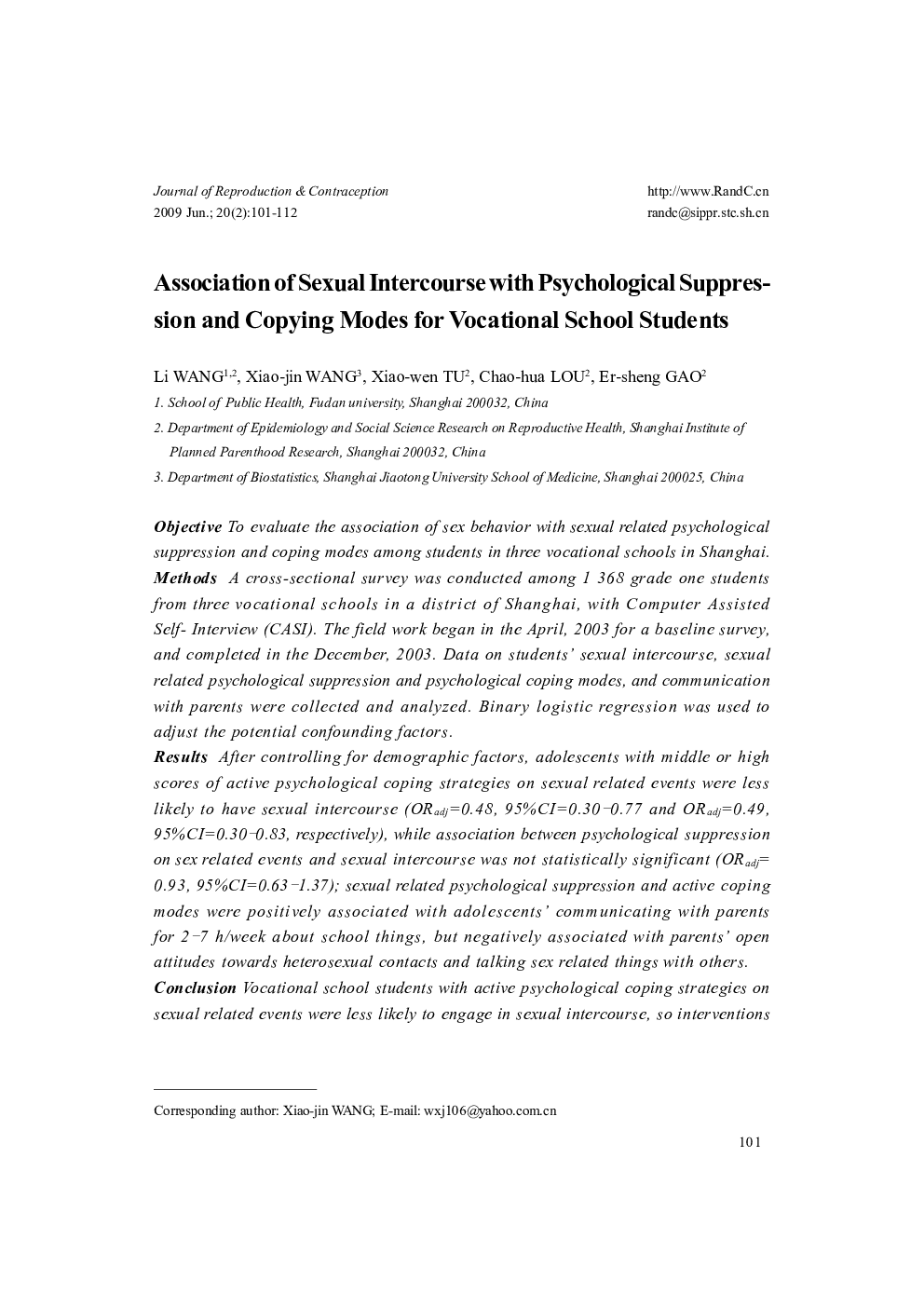| Article ID | Journal | Published Year | Pages | File Type |
|---|---|---|---|---|
| 3963645 | Journal of Reproduction and Contraception | 2009 | 12 Pages |
ObjectiveTo evaluate the association of sex behavior with sexual related psychological suppression and coping modes among students in three vocational schools in Shanghai.MethodsA cross-sectional survey was conducted among 1 368 grade one students from three vocational schools in a district of Shanghai, with Computer Assisted Self- Interview (CASI). The field work began in the April, 2003 for a baseline survey, and completed in the December, 2003. Data on students' sexual intercourse, sexual related psychological suppression and psychological coping modes, and communication with parents were collected and analyzed. Binary logistic regression was used to adjust the potential confounding factors.ResultsAfter controlling for demographic factors, adolescents with middle or high scores of active psychological coping strategies on sexual related events were less likely to have sexual intercourse (OR adj =0.48, 95%CI=0.30-0.77 and OR adj =0.49, 95%CI=0.30-0.83, respectively), while association between psychological suppression on sex related events and sexual intercourse was not statistically significant (OR adj =0.93, 95%CI=0.63-1.37); sexual related psychological suppression and active coping modes were positively associated with adolescents' communicating with parents for 2-7 h/week about school things, but negatively associated with parents' open attitudes towards heterosexual contacts and talking sex related things with others.ConclusionVocational school students with active psychological coping strategies on sexual related events were less likely to engage in sexual intercourse, so interventions focus on reducing unprotected sexual behaviors should target on psychological coping modes skills training.
